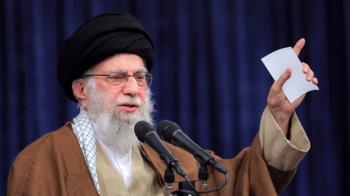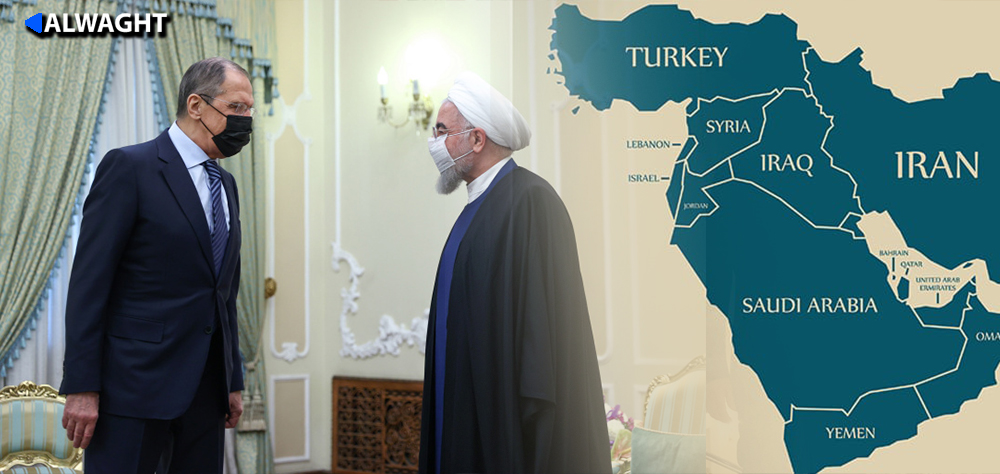Alwaght- Foreign Minister Sergey Lavrov of Russia arrived in Tehran on Tuesday for an official visit to discuss with senior Iranian officials.
The Iranian-Russian relations have been growing fast and moving towards an alliance from an ordinary cooperation over the past decade, especially after the beginning of the crisis in Syria, to whose government both are staunch allies.
Over the past few months, Iranian diplomatic delegations visited Russia repeatedly, discussing a variety of issues. Apparently, thetop Russian’s visit to Iran was made in response to the Iranian visits. During the visit, he pointed to Kremlin's resolution to bolster ties and cooperation at all levels with the Islamic Republic.
A front united against American unilateralism
One of the important faces of the Iranian-Russian regional convergence in foreign policy is their united confrontation of instability, terrorism, and Western interventions in the developments of the strategic region of West Asia. The Western, and mainly American, intervention's challenges to the regional stability, territorial integrity, and national sovereignty of various countries shapes the main source of the threats to national security in the common Russian-Iranian views to the regional order. This view brings the two countries, along with China and North Korea, on the list of the American enemies. The face of this united front is countering the American unilateralism and trying to check the Western destabilizing interventions.
Certainly, the success of Moscow's cooperation with the Iran-led Axis of Resistance in the fight against terrorism in Syria and the defeat of evil Western and Israeli plans for the region have proven the benefits of maintaining and strengthening regional cooperation for both sides' interests. In this direction, Iran and Russia have common positions on various regional issues like the peace in Afghanistan, the Syrian and Lebanese crises, countering extremism and takfiri terrorism, maintaining peace in the Caucasus, as well as the need to end aggression and lift the inhumane Saudi siege on Yemen as the prelude to unlock the crisis dead end in this Arab country.
This course of cooperation, stemming from a growing Iranian tendency to the East and producing long-term cooperation between Iran and the two Eastern powers of China and Russia and also unprecedented joint naval drills, has seriously terrified the US. Washington, which observes its declining international position as a result of the economic crises of the past two decades and domestic problems, fears a Tehran-Beijing-Moscow tripartite alliance would be actively engaged in accelerating the fall of Western hegemony. The consolidation of Russia's military power and China's economic power, Iran's regional influence and energy resources and geopolitical position, and the unification of these sources of power will inevitably form a strong front in the coming years against the US unilateralism and nullify the West’s sanctioning instruments against the independent countries.
Coronavirus, economic partnership, and cultural relations significance
But in addition to the acceptable regional cooperation levels, upgrading the economic cooperation to level of political partnership has been one of the priorities of the talks between the officials of the two sides at their meetings. While the two countries have great potentials for expanding economic partnership, the current trade volume of $2.2 billion, according to 2020 data, is trivial. Neutralizing Western economic sanctions against Tehran and Moscow can incentivize an uplift in their trade levels by clearing the current obstacles and presenting the each other's markets to the domestic producers.
To this end, President Hasan Rouhani of Iran at a meeting with Lavrov called for accelerating the implementation of agreements and joint economic projects in oil, energy and transportation sectors, as well as cooperation to build two new nuclear power plants in southern Iran and to produce fuel and isotopes using the capacities of private companies. With lifting military sanctions on Iran, as well as the imminent collapse of the economic sanctions foundation, Russia is optimistic about investment and marketing in Iran to battle its economic challenges.
Culture is another potential area of cooperation that can help shore up the Iranian-Russian alliance and soft power. In fact, it can have a special place in the outlook for bilateral relations growth.
Lavrov in Tehran also discussed mobilizing bilateral forces to check the fatal coronavirus waves. Russia already sent several shipments of its highly effective Covid-19 vaccine, Sputnik V, to Iran and the Iranians expect this process to go ahead even faster.



























